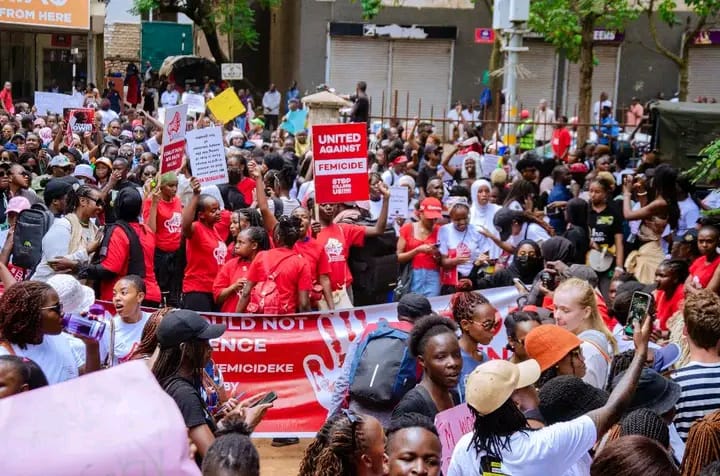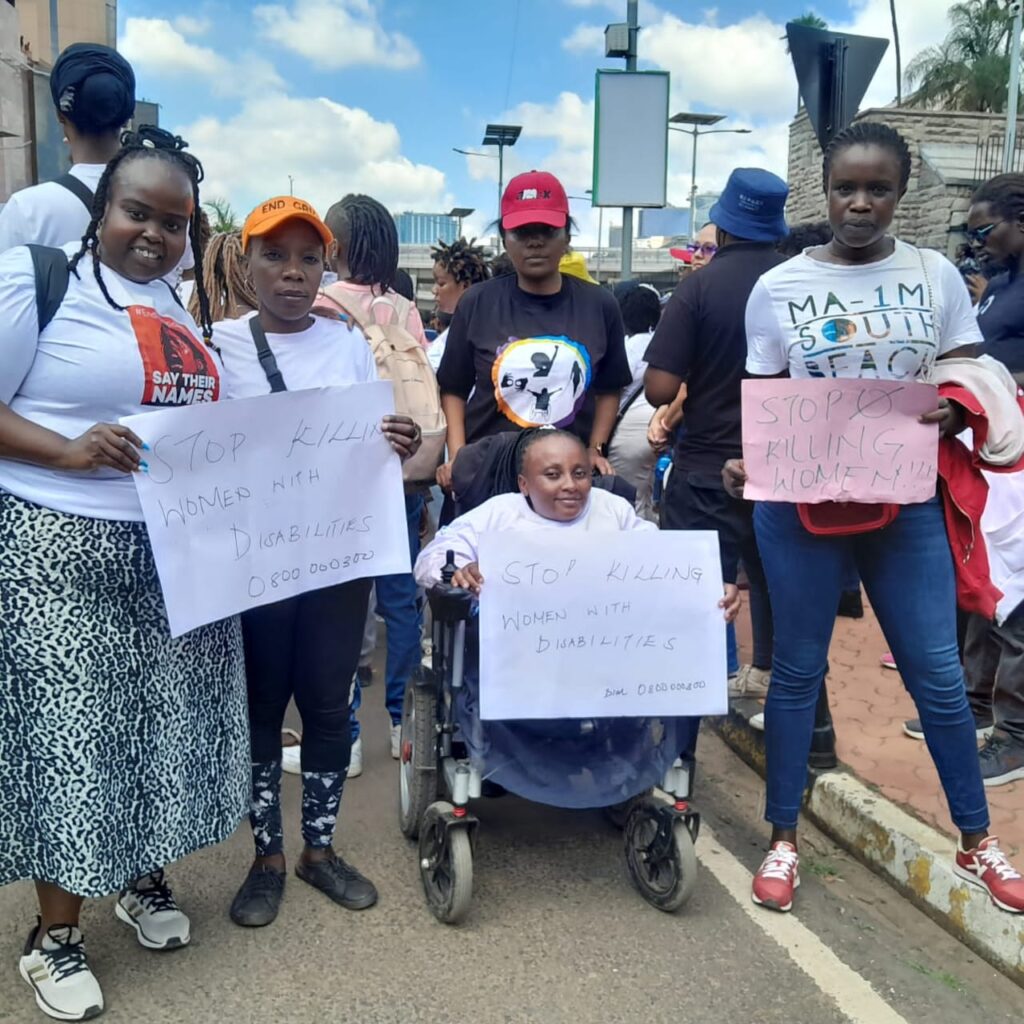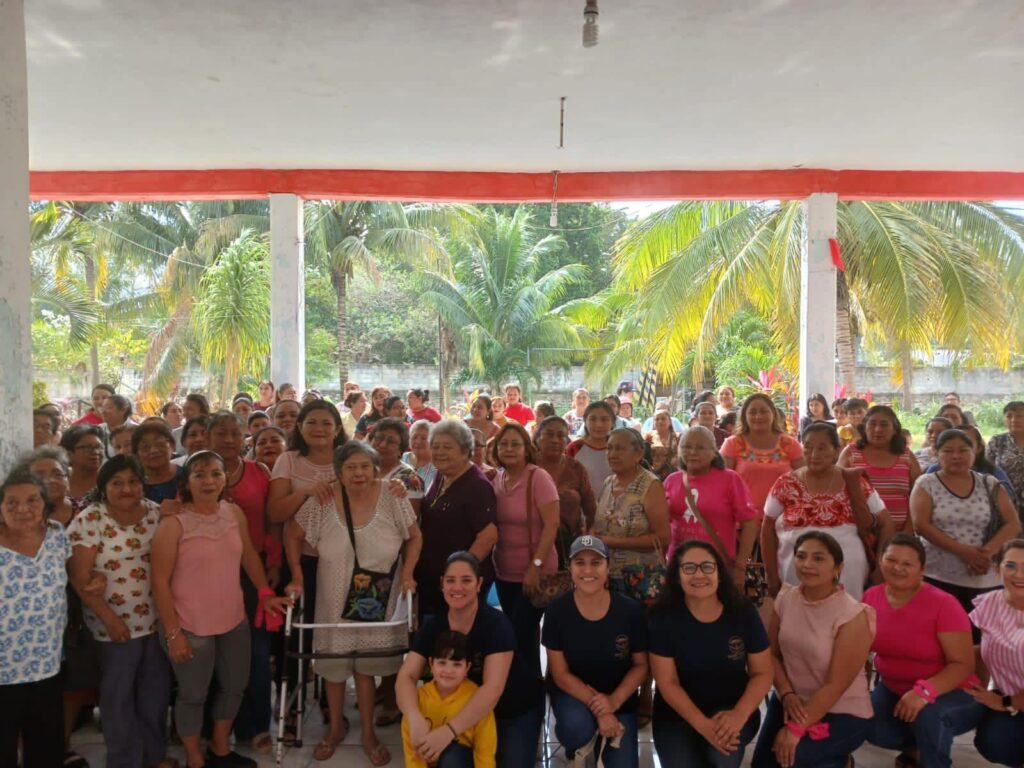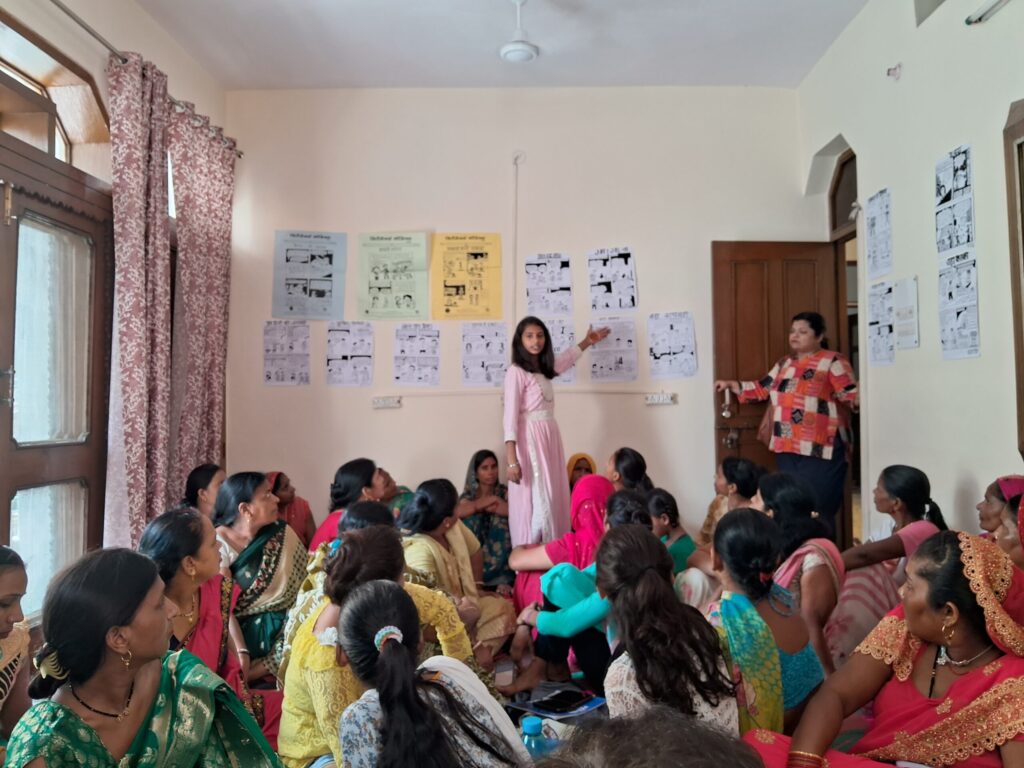Girls and Women with Disabilities and Countless Allies Stand Against Femicide

Femicide, the deliberate killing of women and girls because of their gender, has increased globally in recent times, and Kenya has not been left behind. These killings have sparked a lot of debate and concerns in the community, with different groups staging demonstrations to condemn gender-based violence.
Women and girls with disabilities disproportionately experience gender-based violence, particularly those from informal settlements where resources and access to justice systems are limited. Recognizing this urgent need, The Action Foundation’s Ibuka (Adolescent Girls and Young Women’s Empowerment) Program, which offers mentorship to these young women, established a Legal Aid Clinic tailored specifically for women and girls with disabilities in the informal settlements of Kibera and Kawangware, near Nairobi, Kenya.
The initiative aims to empower them by providing access to legal support and literacy, advocacy, and educational resources. Thanks to this, women and girls with disabilities have been empowered with knowledge of their rights, legal literacy, and self-advocacy skills. The legal aid clinic has positively affected their lives, enabling them to voice out their issues and to understand their rights.
Our empowered girls were able to march out in great numbers on January 27, 2024, for the Femicide walk in the streets of Nairobi. Armed with self-advocacy skills, the women marched with their colleagues, calling for the end of femicide and violence against young girls and women. They wore T-shirts and carried banners and placards with powerful messages, such as, “STOP KILLING US’’ and ‘’THERE IS NO JUSTIFICATION FOR KILLING WOMEN,” just to amplify their voices.

Amid other demonstrators, and driven by a shared sense of urgency and dissatisfaction at the alarming rate of gender-based violence, girls and women with disabilities marched, demanding urgent intervention and accountability from the authorities and calling for the end of impunity for the perpetrators. Their faces showed tired and angry people — tired of mourning and parting with loved ones lost to senseless brutality, and angry with leaders for keeping quiet and not calling out the perpetrators.
Notably, the demonstration was so inclusive that it brought together all genders, men and women, activists, policy advocates, those living with disabilities, and survivors of gender-based violence, among others. We all stood together, shoulder to shoulder, acknowledging that the fight against gender-based violence is not solely a concern of one gender, but rather, a responsibility for us all.
In the day’s speeches, survivors of gender-based violence shared their stories, their bravery shining as a guiding light for others who endure in silence. The speakers noted that healing is a process. As the sun set, and curtains closed on the day, the protests came to an end. However, the sense of defiance sparked by the demonstrators remains in the hearts of those who witnessed the day’s powerful display of hope and unity.




